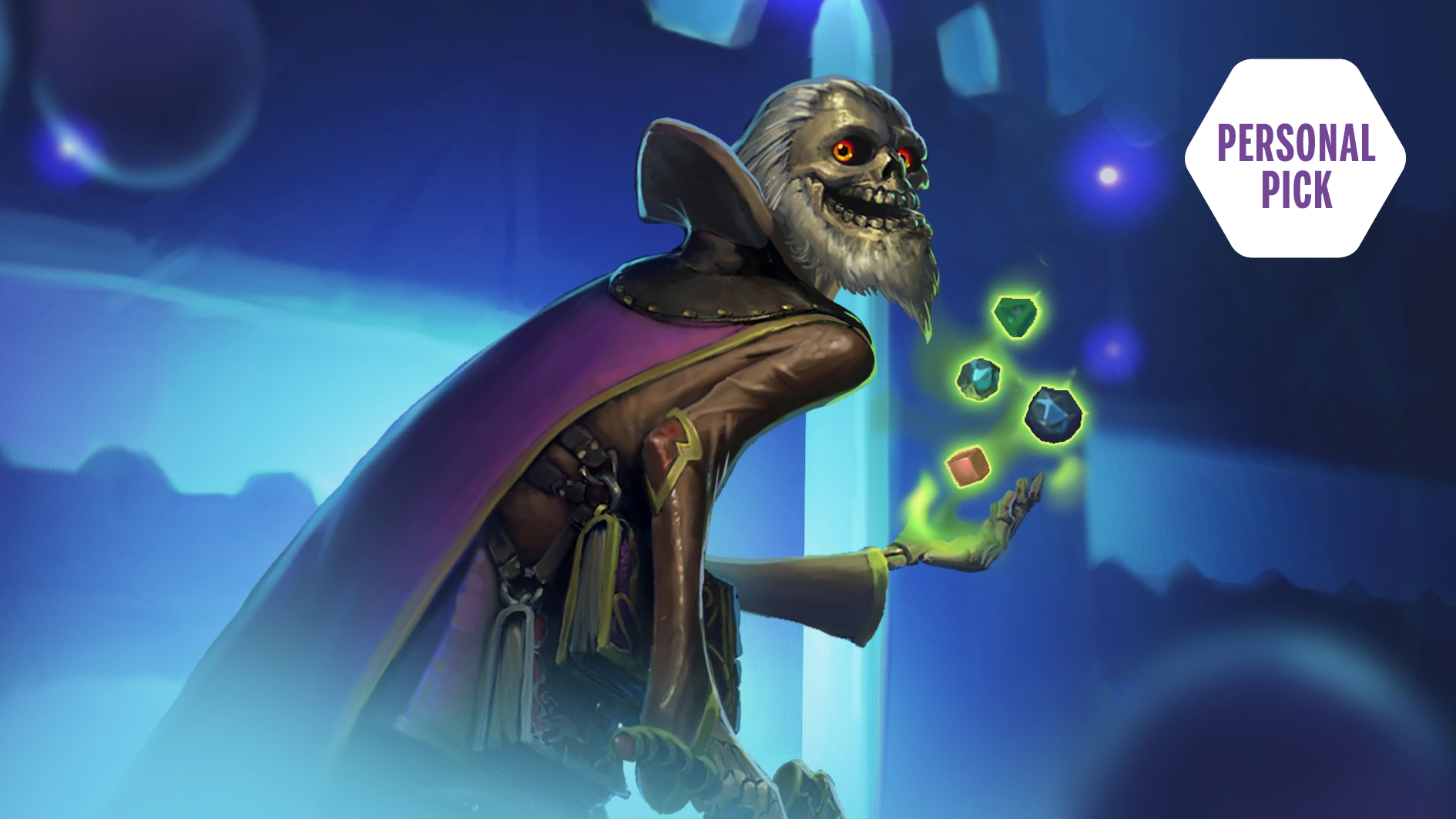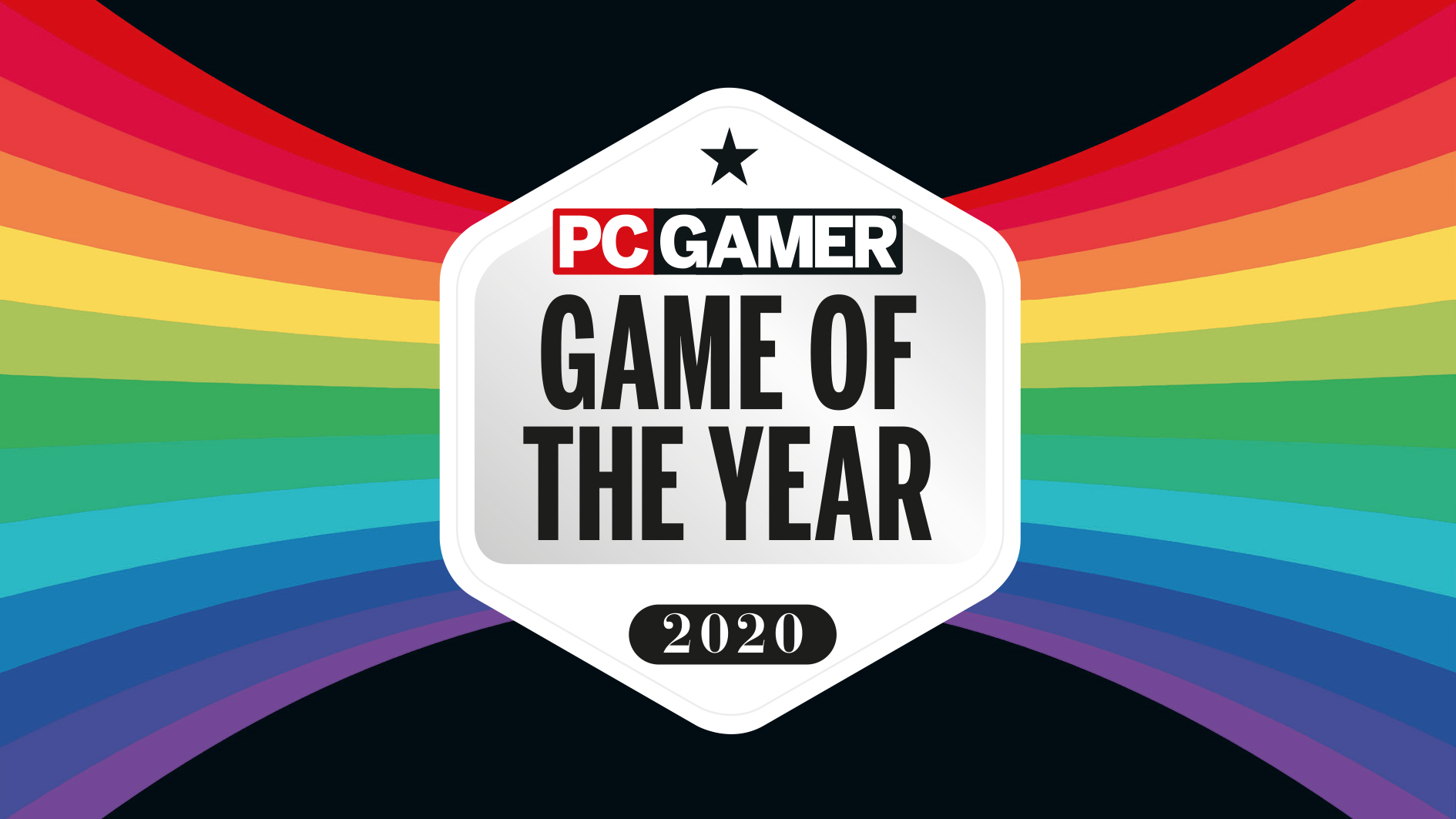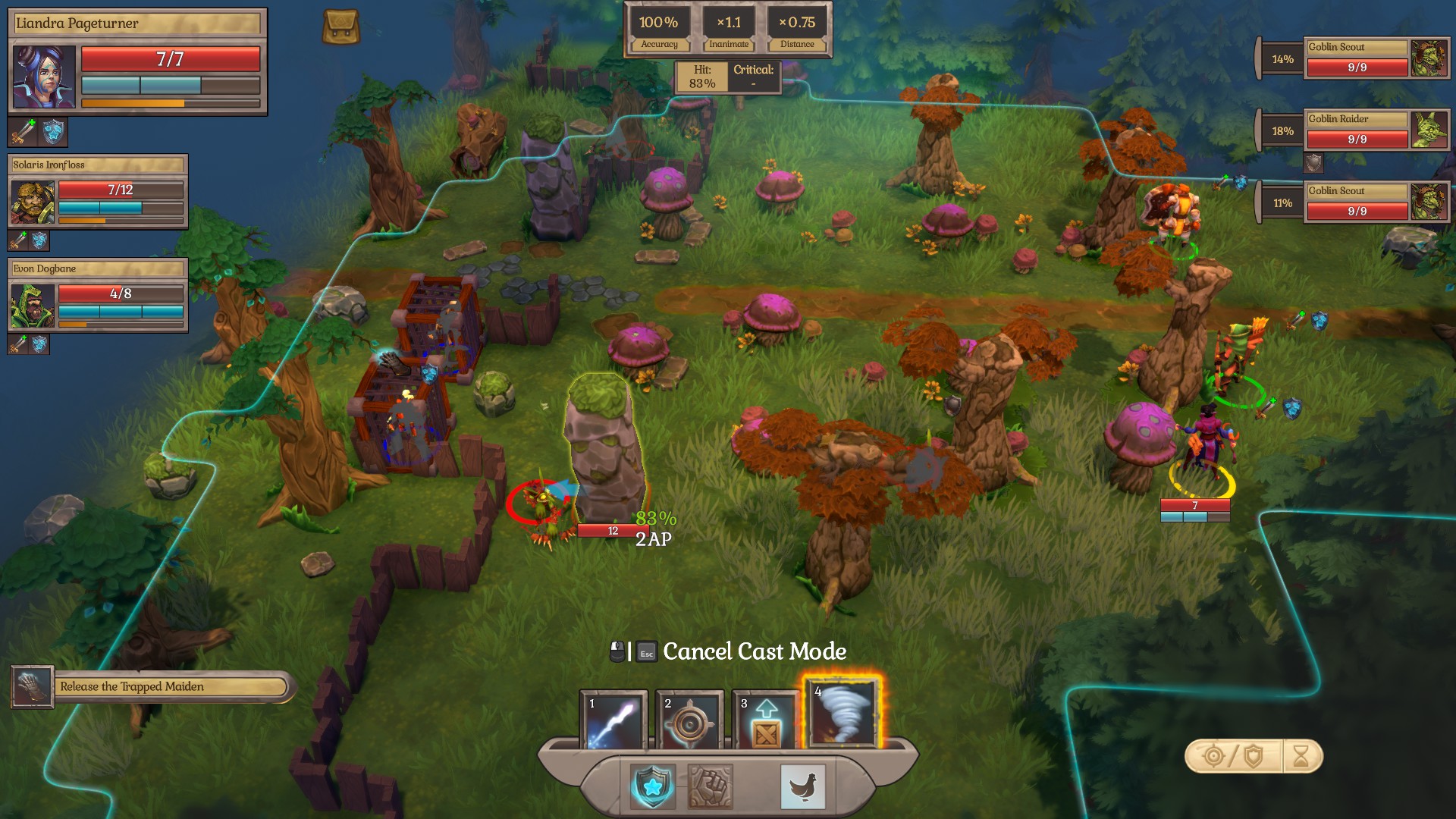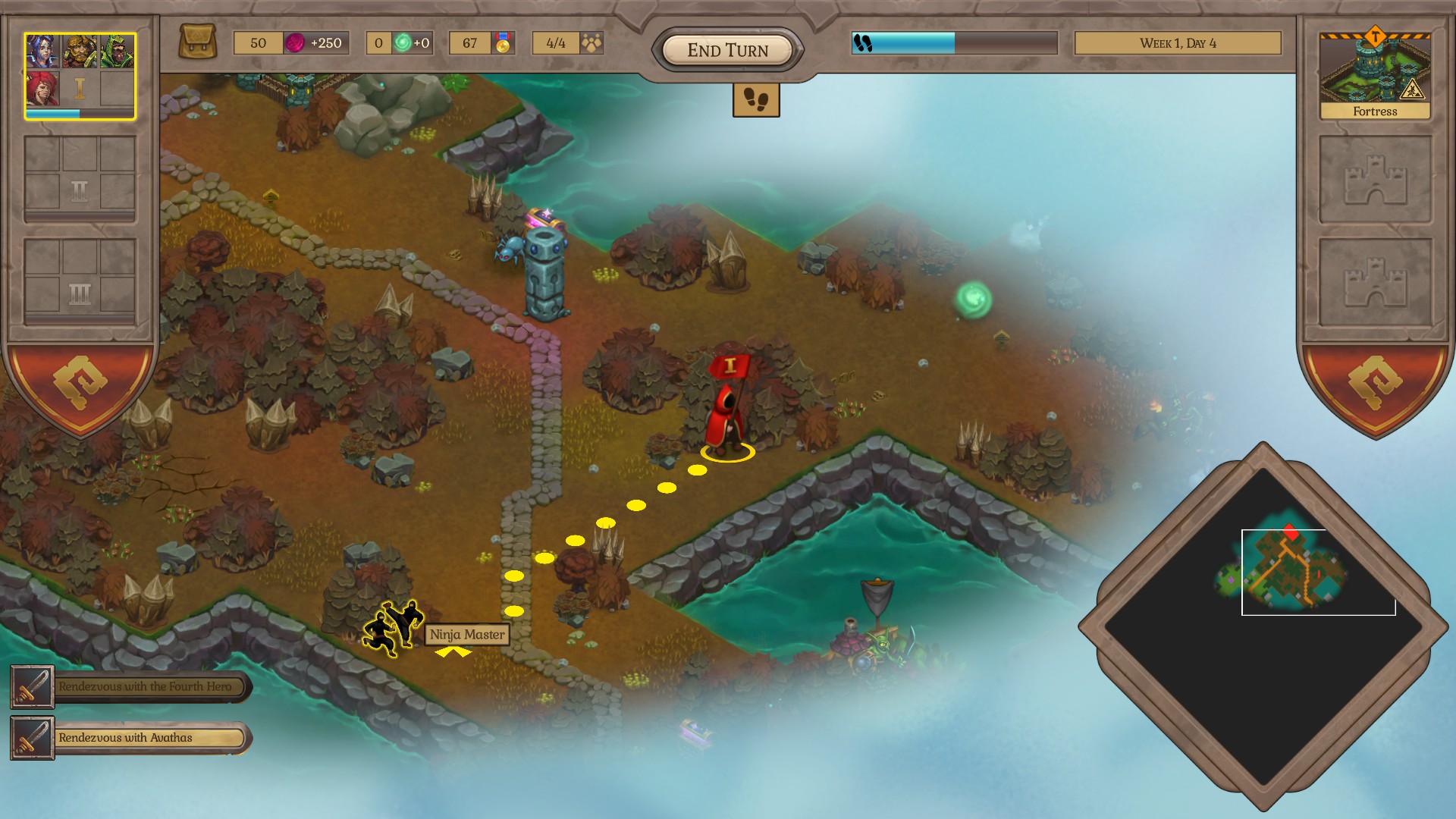Fort Triumph makes turn-based tactics into slapstick comedy
Heroes of Might & Manic.


In addition to our team-selected Game of the Year Awards 2020, individual members of the PC Gamer team each selected one of their own favourite games of the year.
In 2020 I ran a game of Dungeons & Dragons over the internet, wrangling together Zoom, Discord, Owlbear Rodeo and five good friends. It was a light-hearted game with a lot of silly voices—at the Minsc and Boo end of the D&D spectrum—which was exactly what we needed. The kind of game where they ended up befriending most of the monsters, including a tribe of goblins, two hags, one exiled mind flayer, and a giant talking crab, though they also fought a band of gnolls across treetop platforms and a white dragon on slippery ice.
Fort Triumph is the same flavor of fantasy, more Terry Pratchett than George R. R. Martin. At one point a troll bouncer with concerns about health and safety explains to the obligatory shady guest in a cloak that you should "skulk from the knees". Its heroes become adventurers to deal with unemployment and student debt, and then find out the questing economy is broken as hell.

Fort Triumph is a turn-based tactics game, by the way. Percentage chances to hit, overwatch, action points, the whole deal. It doesn't stop being funny once you've loaded a battlemap, though—each one is covered in objects that can be moved or knocked over with spells, tools, or just a hefty kick. The cute little tilt-shifted goblins, bandits, and other fantasy enemies can be moved about with these abilities too, and collisions result in stuns that prevent them attacking for a turn. You shoot your grappling hook at a guy to bash his head against the rock he's hiding behind, cast whirlwind to topple a pillar on a skeleton, kick a tree over on top of a wizard. It's physics as physical comedy.
An ideal turn ends with every enemy stunned so that all they can do is use their movement to reposition, presenting you with another puzzle of things to push and pull on your turn. You can also just attack enemies, of course. But when you're engaging with those mechanics, using a magic item that removes friction (a bar of soap on a stick) on a boulder so you can slide it across a bridge to hit a giant spider, that's when Fort Triumph shines.
It's got a neat strategy layer too, borrowed from Heroes of Might & Magic and King's Bounty. Each campaign map gives you a town to build up and bundles of resources off the beaten path, letting you wallow in each one fighting the trolls guarding chests or discovering hidden artifacts. Each turn on the campaign map represents a single day, and every time a week passes the monsters increase in strength. It's a familiar formula if you've played the games it's borrowing from, but given how underwhelming the last couple of Might & Magic Heroes games have been, it's nice to see this formula handled with competence.

It was a packed year for turn-based tactics games, bringing us the likes of Fae Tactics, Othercide, Troubleshooter, Warhammer Underworlds Online, and Stirring Abyss. Fort Triumph had the bad luck to be released in the same month as two of 2020's biggest entries in the genre, XCOM: Chimera Squad and Gears Tactics, which inevitably sucked all the air out of the room.
Fort Triumph deserves better than to be forgotten, though. When I yank some jerk into a giant mushroom that then slides forward and hits my own archer, or accidentally catch the NPC I'm trying to rescue in the radius of a rashly placed fireball, it reminds me of the daft things my players do in D&D. Fort Triumph understands the inherent silliness of wizards using their hard-earned arcane powers to drop rocks on skeletons. It also understands the silliness of a paladin charging halfway across a field, then ducking into hard cover because he doesn't have enough movement to make it to the liche this turn. It's far from the first game to realize fantasy clichés are goofy, but it combines that with an understanding of how ridiculous the things we do in strategy games look, making every battle an absurdist turn-based farce.
The biggest gaming news, reviews and hardware deals
Keep up to date with the most important stories and the best deals, as picked by the PC Gamer team.

Jody's first computer was a Commodore 64, so he remembers having to use a code wheel to play Pool of Radiance. A former music journalist who interviewed everyone from Giorgio Moroder to Trent Reznor, Jody also co-hosted Australia's first radio show about videogames, Zed Games. He's written for Rock Paper Shotgun, The Big Issue, GamesRadar, Zam, Glixel, Five Out of Ten Magazine, and Playboy.com, whose cheques with the bunny logo made for fun conversations at the bank. Jody's first article for PC Gamer was about the audio of Alien Isolation, published in 2015, and since then he's written about why Silent Hill belongs on PC, why Recettear: An Item Shop's Tale is the best fantasy shopkeeper tycoon game, and how weird Lost Ark can get. Jody edited PC Gamer Indie from 2017 to 2018, and he eventually lived up to his promise to play every Warhammer videogame.

